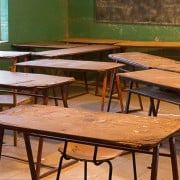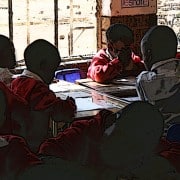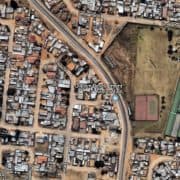|
Getting your Trinity Audio player ready...
|
In its report released today, titled Loss of Principle, Corruption Watch reveals that between January 2012 and July 2015 more than 1 000 reports have been received from the public regarding corruption in schools across South Africa. Of these reports, 54% implicate principals as the primary culprits in corrupt activities.
These reports follow a pattern of collusion between, among others, members of school governing bodies (SGBs), teachers, family members and other outside parties involved in contractual arrangements with schools.
The types of corruption captured in the report range from financial mismanagement (37%), theft of funds (20%), and tender corruption (13%), with the remaining reports covering employment corruption, abuse of power in relation to learners, and theft of goods. While these reports originate from all provinces, the bulk was received from Gauteng, Free State, KwaZulu-Natal and Eastern Cape.
“This report is about what is misleading referred to as ‘petty corruption’,” said David Lewis, executive director at Corruption Watch. “It is petty only in the sense that the individual amounts of money involved are small relative to some of the public scandals. But the impact on the lives of the most disadvantaged is huge – the difference between an extra classroom and overcrowded classrooms. And it is in these acts of petty corruption that ordinary people form their impressions of the public sector and democratic institutions, whether they are to be trusted or not.”
In this report, Corruption Watch provides the details of 10 investigations conducted in schools in Gauteng and KwaZulu-Natal. Of these cases, nine out of 10 point to principals abusing school funds, some of whom have been found guilty of maladministration, although others still have access to school funds in spite of being under investigation, while a number have merely been moved to other schools.
Corruption Watch commends the relentless efforts of whistleblowers to bring to light corrupt activities in schools, and their contribution to the success of these investigations. These cases of corruption took place in a mixture of primary, secondary and high schools, namely:
- Senoane Secondary School, Soweto
- Parkdale Primary School, Eldorado Park
- Lyttelton Primary School, Pretoria
- Providence Academy, Johannesburg
- Mogobeng Primary School, Katlehong
- Brakpan High School, East Rand
- Halfway House Primary School, Midrand
- Mbozamo Primary School, KwaDukuza
- Kwampunzi Combined School, Zululand
The report offers some recommendations for good governance in schools, highlighting the key role of SGBs, auditors and principals. It also emphasises the collective responsibility of these role players, along with provincial and national departments, as well as teachers and learners at the school level.
In addition to providing some practical information to enhance the capacity and understanding of SGB members, the report also underlines some of the key challenges that result in persistent and widespread corruption in schools. These include the lack of training and knowledge about processes in managing school finances, incompetence and ignorance about what constitutes corruption, and a lack of a level playing field in terms of capacity.
Read the report online on our Issuu page.
For more information:
Lucky Ronald Menoe – 072 577 8419
David Lewis – 082 576 3748
Leanne Govindsamy – 076 715 8270








